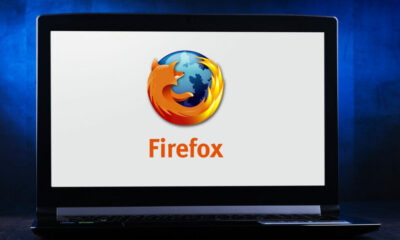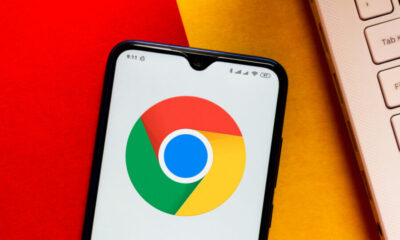Reviews
Apple Claims Manages 5 App Outlets Not Exclusive
The renowned tech giant Apple has communicated to the European Union that it effectively oversees not one but five App Marketplaces. This unique declaration arises several months before the implementation of the EU’s Digital Markets Law.
Apple confirms its operation of 5 App stores
The Digital Markets Act (DMA) was ratified in May 2022 to empower antitrust regulators in designating major tech companies as gatekeepers. These gatekeepers must adhere to strict regulations to ensure fair competition among rival products.
While Apple’s macOS was excluded from being identified as a gatekeeper because it allows apps from external sources and has a smaller user base than Microsoft Windows, the iOS App Store was categorized as a gatekeeper due to its large user base. Apple collects a significant 30% commission fee for all transactions processed through its payment system. The company has restricted access to alternative payment methods, a practice seen as anti-competitive. Additionally, developers are required to pay an annual fee to Apple to host their apps on the App Store.
Apple will soon be obligated to allow iOS users in European Union countries to install apps from third-party sources, commonly known as side-loading apps. With the DMA law coming into effect in March, Apple will need to expand the iOS ecosystem, potentially leading to substantial revenue losses as it foregoes revenue from in-app transactions and developer fees. Apple opposed the Digital Markets Act in November, but there has been little information on the appeal’s progress.
Currently, Apple seems to be making a final effort to protect the App Store and the revenue it generates. According to Reuters, Apple has argued before the Luxembourg-based General Court, Europe’s second-highest court, that the European Commission made a mistake in its findings by asserting that Apple’s five App Stores form a single core platform service.
Apple argues that the antitrust regulator should recognize that it manages five separate app stores, each customized for one of its devices: iPhones, iPads, Macs, Apple Watches, and Apple TVs. Essentially, it maintains that the App Store for iOS, iPadOS, macOS, Apple Watch, and Apple TV are distinctly independent. From a technical perspective, this number could soon rise to 6 with the introduction of the upcoming visionOS App Store.
An incorrect proposition or a final appeal?
Is this argument logical? Firefox supports Linux, macOS, and Windows. Do we consider these as three separate browsers, or do they all fall under a single brand? Interestingly, Apple previously tried to convince the EU that Safari for iOS, iPadOS, and macOS were three distinct browsers, but the argument was dismissed last year, resulting in Safari being classified as a Gatekeeper.
Let’s consider other app platforms. The Google Play Store caters to Android smartphones, tablets, and TVs. When you download an app on a supported device, it becomes available on all your devices. Do these operate under one umbrella?
The Steam client is compatible with Windows, macOS, and Linux. Does this mean that Valve manages three app repositories, one for each operating system? No, it is platform-agnostic, meaning the clients are designed to work across devices while granting access to a unified entity. Developers choose the operating system they want to launch their game for. Many modern games on the platform are compatible with all three operating systems. Therefore, you purchase a game once and play it on three different machines.
Now, focusing on Apple’s “App Stores.” When you download an app on your iPhone, it syncs with your account, allowing you to download the same app on your iPad.
All five purported App Stores are accessible through the same domain, apps.apple.com, indicating that they are not isolated hosting units. The interface differs across devices, as do the available contents for each device. It is worth noting that Macs equipped with an Apple Silicon chip can download iOS apps from the App Store. It does not redirect you to a separate iOS App Store for app access; instead, you access them through the integrated App Store in macOS.
Do developers need to register five times, agreeing to a different contract each time? Or do they need to log in to five app platforms to upload their apps? No, developers access a unified platform and simply indicate a restriction on which device can access the app. For example, if an app is optimized for iPhones, it is only available on mobile devices. Alternatively, if an app caters to multiple operating systems, developers can configure it to support each one, and the compatible version will be accessible to users on their device from the store. The same applies to user accounts; you do not create a profile on each device or operating system, as it is universal.
Apple’s argument likely hinges on how the App Store is displayed to users on a specific device. The App Store is not just resized to fit the device’s screen; it exclusively showcases apps compatible with the current device and its respective operating system. For instance, if you are using an iPhone, you will only see apps for iOS; iPad or Mac apps will not be visible. However, this process only involves filtering apps based on device compatibility; it does not validate the existence of five app platforms. Apple recently revealed that there are 123 million active users on the App Store in Europe.
Apple claims iMessage operates independently without charges
The European Commission is deliberating whether Apple’s messaging platform, iMessage, should comply with the DMA. Yet, Apple’s legal argument opposes the Commission’s classification of iMessage as a number-independent interpersonal communication service (NIICS).
In Europe, users tend to favor third-party messaging apps like WhatsApp, which could reduce the use of iMessage compared to its popularity in the United States. Apple argues that iMessage is not a fee-based service as it does not generate revenue. However, many users, especially in the U.S., prefer iPhones to access iMessage and FaceTime. iMessage is not available on Android devices, prompting users to purchase an iPhone. This aspect may play a role in boosting iPhone sales. Notably, Apple is gearing up to introduce RCS support in iOS this year, possibly to avoid being classified as a gatekeeper.
Image Source: rukawajung / Shutterstock





















